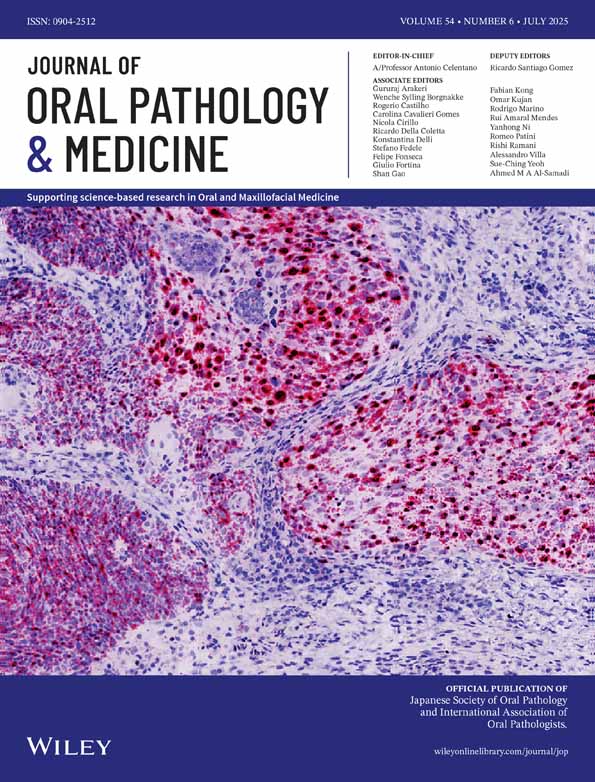TNF-α expression and apoptosis-regulating proteins in oral lichen planus: a comparative immunohistochemical evaluation
Abstract
Abstract: Apoptosis appears to be the mode of cell death by which damaged cells are removed from the lesional tissue in oral lichen planus (OLP). In the present study, OLP biopsies were immunohistochemically evaluated for TNF-α and apoptosis-regulating proteins in an attempt to compare their phenotypic expression. Deparaffinized tissue sections from 22 OLP and 10 control oral biopsy specimens were immunohistochemically stained with anti-Bcl-2, anti-Bcl-x, anti-Bax and anti-TNF-α antibodies. Keratinocytes did not show any immunoreactivity for Bcl-2, while a uniform intense staining for this protein was evident in the lymphocytic infiltrate of OLP specimens. Immunoreactivity for TNF-α was seen in 17/22 OLP cases. All control tissues were TNF-α negative, thus indicating a possible involvement of this cytokine in the pathogenesis of OLP. The differences in the staining intensities of Bcl-x and Bax between OLP and normal epithelium were slight; therefore an obvious association of the phenotypic TNF-α expression with these apoptosis-regulating proteins was not apparent.




